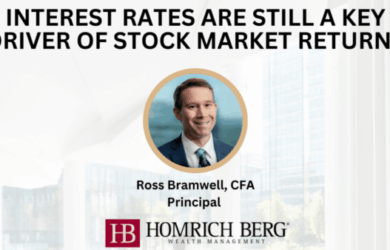By: Todd Hall
March 12, 2020
Two news stories dominating the headlines these days are the spread of Coronavirus (COVID-19) and the stock market reaction. Just like with previous market downturns, many investors are wrestling with three competing ideas of how to respond:
- Should I buy more stocks while they’re cheap?
- Should I sell stocks before things get worse?
- Should I stay put and ride out the storm?
Often overlooked in a market downturn are planning ideas that do not involve making significant changes to your investment portfolio. Below are some ideas to consider that do not involve making major changes to the amount of equities you own in your portfolio:
1. Refinancing your mortgage: A side effect of the market downturn is that interest rates are at historic lows. While rates are have been changing frequently in the past couple weeks, we have seen 30-year fixed rates below 3.5% and 15-year loans below 3.0%. Over the life of the loan, this could save a significant amount.
Example: A family with a $500,000 30-year mortgage at 4.5% will pay $3,500 more per year, and $100,000 more in interest over the 30-year period than the same sized loan at 3.5%. Consider reaching out to your mortgage broker or banker. Also, check with a local credit union to compare rates. Homrich Berg does not sell mortgages, but we do have relationships with several mortgage brokers and lenders who may be able to help you save money on your mortgage. Let us know if you need help with this.
2. Roth Conversions: This may be a strategy to consider for investors who:
-
- Are younger and have several years until retirement
- Are heavily weighted in stocks within their IRA or 401(k) accounts
- Are not concerned about the market downturn and believe it to be temporary
A Roth Conversion is a transfer of funds from one retirement account to another with different tax treatment. The funds would go from a traditional pre-tax IRA to a Roth IRA. The primary difference in these two accounts is that you got a tax deduction up front for funding the traditional IRA but the funds are fully taxable upon withdrawal. The Roth is the opposite; it is funded with after-tax dollars and withdrawals (including growth) are tax free in retirement. For this reason, doing a Roth Conversion is a taxable event in the year in which it is done – think of this as “pre-paying” the income tax on the funds you convert at today’s values and today’s tax rates.
Example: If an IRA was worth $100,000 at the end of 2019 and it is worth $85,000 today, the IRA owner could convert the entire balance to Roth IRA and pay tax on $85,000. If the IRA owner believe values are going back up in the future, he or she will be paying tax based on a temporary lower value. The IRA owner could also do a partial conversion.
To make this strategy work, it’s important to be able to pay the tax on the conversion with cash from outside the retirement account.
Note: you may also be able to implement this strategy with a conversion from traditional 401(k) to Roth 401(k) if you are in a plan that allows this.
3. Accelerate IRA Distributions: This may be a strategy to consider for investors who:
-
- Are already taking required minimum distributions from IRA accounts (i.e those in their 70s or older)
- Are heavily weighted to bonds in their IRA, and have thus seen their account balances increase in the past few weeks.
Often a downturn in the stock market corresponds with an increase in bond values. For investors who have seen their IRA balance increase because they hold mostly bonds, they may consider taking their annual distributions now. The annual required minimum distributions (RMDs), for example, are based on the IRA balance as of 12/31/2019. Taking the distribution during a stock market downturn (from an IRA mostly in bonds) may deplete the account by a smaller percentage than taking the same distribution during more normal market conditions.
4. Accelerate 529 funding. This strategy may make sense for families that are funding 529 plans on a monthly basis. If they were to “pre-fund” several months (or years) worth of contributions during a market downturn, this could pay off in the long run. This is especially true if the child in question is very young, and the account has a longer opportunity to grow.
5. Accelerate IRA or 401(k) funding. Similar to item #4 above, this may make sense for investors who save a monthly amount into an IRA, Roth IRA, or 401(k). If they are able to fund more during the market downturn, they would have more in the account to participate in the market recovery whenever that occurs. Importantly, this would be a better strategy for someone who is investing primarily in stocks in their IRA (or Roth IRA), and who has several years until retirement.
6. Diversifying concentrated positions – Investors with concentrated stock positions may be able to diversify with lower tax consequences during a downturn than they could when markets were at their recent highs.
7. Tax loss harvesting – Investors who have purchased securities recently that have gone down in value may be able to sell those at a loss, which can have a tax benefit. They often can find another suitable place to invest the proceeds so they aren’t missing out when the market recovers.
These are just a few ideas that may be helpful for investors who would like to take advantage of the market downturn, but not necessarily by making changes to their overall investment portfolio or asset allocation. We hope you find them helpful. Each idea has pros and cons that you should discuss with a qualified advisor. Please reach out to HB if you have questions.
NOTE – This is the first of two blog posts discussing planning ideas during a market downturn. The next post will focus on estate planning ideas.













Evaluating Business Structures: The Pros And Cons
Family businesses often start small with simple business and tax structures. However, as businesses expand,…
Read More